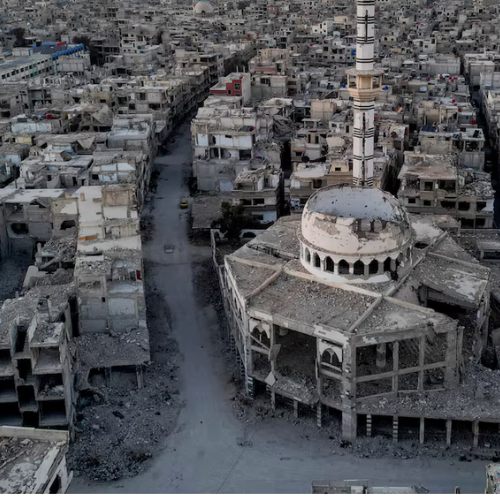The International Monetary Fund (IMF) has expressed its willingness to help Syria with rebuilding efforts, but it has emphasized that the country’s situation remains unpredictable. According to the IMF, it is too soon to make a proper assessment of the country’s economic needs.
The IMF has stated that it is carefully watching the developments in Syria. While it is ready to offer assistance, it has made it clear that it will only step in when the conditions are right. This means that they are waiting for a stable situation on the ground before offering support for reconstruction.
No Contact with Syrian Authorities Since 2009
The IMF has not had significant communication with the Syrian government since 2009. This is important because, typically, they work closely with a country’s authorities to understand the economy and provide the necessary support. However, due to the ongoing conflict and the complex political situation in Syria, the IMF has not been able to engage meaningfully with the government or any new authorities that have emerged.
Since 2009, the IMF has not been able to conduct economic consultations with Syria. Economic consultations are meetings where the IMF helps governments understand their economic situation, challenges, and potential solutions. For years, the conflict in Syria has prevented this kind of cooperation.
The Situation on the Ground Remains Fluid
The IMF recognizes that the situation in Syria is still changing and unpredictable. With over 13 years of civil war, the country has faced enormous challenges. The conflict has devastated much of Syria’s infrastructure, economy, and social fabric. As a result, it is difficult for organizations to assess the full scope of damage and the extent of help that is needed.
The IMF spokesperson, while expressing concern over the humanitarian crisis in Syria, also stated that the country needs to begin addressing not just the economic but also the social and humanitarian challenges it is facing. The people of Syria have suffered immensely throughout the war, and the IMF hopes that as stability returns, efforts can be made to repair and rebuild the country.
Syria’s Struggle: UN Demands End to Crushing Sanctions
Syria’s needs are wide-ranging, from rebuilding homes and schools to restoring basic services such as water, electricity, and healthcare. These challenges are compounded by the long-lasting damage done to the country’s economy. The IMF has made it clear that it stands ready to support international efforts to rebuild the country but only when it is safe and appropriate to do so.
IMF’s Support for Ukraine
In addition to its comments on Syria, they are also focused on helping Ukraine as it continues to face its own set of challenges due to the ongoing conflict there. The IMF’s Executive Board is meeting to approve a new round of financial support for Ukraine. This support comes in the form of a $1.1 billion loan as part of a larger financial assistance program worth $15.6 billion for Ukraine.
This loan is part of the sixth review of Ukraine’s loan program. If approved, this would bring the total amount disbursed to Ukraine from the IMF’s loan program to $9.8 billion, with an additional $2.7 billion available in 2025.
While they are ready to help both Syria and Ukraine, the situation in each country is very different. They are taking a cautious approach to Syria, waiting for the situation to stabilize before offering any financial support. In the case of Ukraine, however, they are continuing to assist with its reconstruction efforts in the face of ongoing war.
The IMF’s role in global reconstruction is important because it helps countries facing difficult situations with financial support and expertise. However, in the case of Syria, much more time and stability are needed before any concrete steps can be taken toward reconstruction.
While Syria’s path to recovery is uncertain, the IMF has committed to working with the international community to help rebuild the country when the conditions allow. For now, the focus remains on monitoring the situation closely and ensuring that the right conditions are in place for effective assistance.




